Slobbers in Horses
Updated on 05/27/24
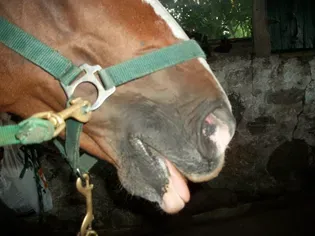
Unveiling the Secrets of Slobbers in Horses: A Comprehensive Guide
Slobbers, scientifically termed Ptyalism, is a condition characterized by excessive salivation in horses. While it can be a normal physiological response to certain stimuli, persistent slobbers can indicate underlying health issues that require attention. This comprehensive guide will delve into the intricacies of slobbers in horses, exploring its causes, symptoms, and effective management strategies.
Understanding the Causes of Slobbers
Slobbers in horses can stem from a variety of factors, both physiological and pathological. Here are some common causes:
* Physiological Stimuli:
* Stress, anxiety, or excitement can trigger increased salivation.
* Ingestion of certain plants, such as clover or alfalfa, which contain saponins that stimulate saliva production.
* Dental problems, such as loose teeth or gum disease, can lead to drooling.
* Pregnancy in mares can also result in increased salivation.
* Pathological Conditions:
* Infections, such as strangles or equine influenza, can cause excessive salivation.
* Medications, such as tranquilizers or anticholinergics, can also lead to slobbers.
* Liver disease can disrupt bile flow and result in increased saliva production.
* Neurologic disorders affecting the salivary glands can cause slobbers.
Identifying the Symptoms of Slobbers
Excessive salivation is the hallmark symptom of slobbers in horses. The saliva may be clear or frothy, and it can drip from the mouth or accumulate on the horse's chin. Other signs that may accompany slobbers include:
* Dropping food or water from the mouth
* Coughing or gagging
* Head shaking
* Difficulty swallowing
Managing Slobbers in Horses
The management of slobbers depends on the underlying cause. If the slobbers are due to a transient physiological stimulus, such as stress or excitement, it will typically resolve on its own. However, if the slobbers are persistent or accompanied by other symptoms, it is essential to seek veterinary attention.
* Addressing Underlying Causes:
* If the slobbers are caused by a dental problem, prompt treatment is necessary to address the issue.
* For infections, appropriate antibiotics or antiviral medications will be prescribed.
* If medications are suspected to be the cause, your veterinarian may adjust the dosage or switch to an alternative drug.
* Symptomatic Management:
* If the slobbers are excessive and causing discomfort, there are several measures that can help alleviate the symptoms.
* Toweling the Mouth: Gently patting the horse's mouth with a clean towel can help absorb the excess saliva.
* Using a Saliva Gutt: A saliva gutt is a special drainage device that can be attached to the horse's chin to collect the saliva.
* Administering Anticholinergics: These medications can reduce saliva production.
Preventing Slobbers in Horses
While not all causes of slobbers can be prevented, there are certain measures that can help reduce the likelihood of occurrence:
* Managing Stress: Provide a calm and stress-free environment for your horse.
* Avoiding Toxic Plants: Keep your horse away from plants known to cause slobbers.
* Maintaining Dental Health: Regular dental checkups and care can prevent dental problems that may lead to drooling.
* Monitoring for Infections: Vaccinate your horse against common equine diseases and observe for any signs of infection.
* Proper Medication Management: Always follow your veterinarian's instructions for medication dosage and frequency.
Conclusion
Slobbers in horses can be an indicator of both physiological and pathological conditions. It is important to observe the symptoms and seek veterinary attention if necessary. By understanding the causes and symptoms of slobbers, as well as implementing appropriate management strategies, horse owners can effectively address this condition and ensure the well-being of their animals.
Explore More Pets
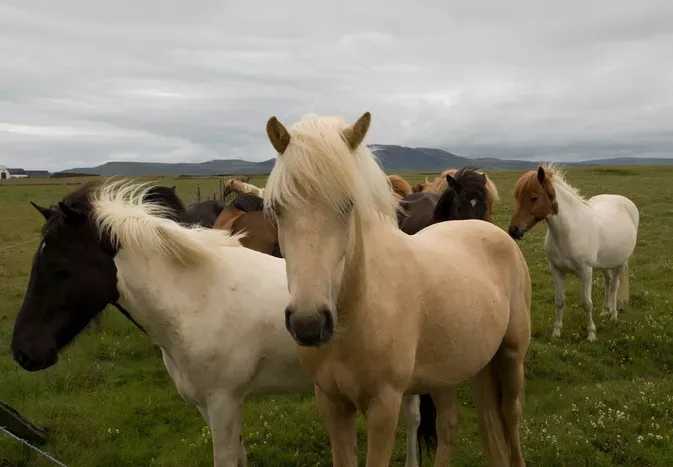
Pony Breeds
The Difference Between Horses and Ponies

Horse Diseases & Conditions
What Do I Do If My Horse Colics?
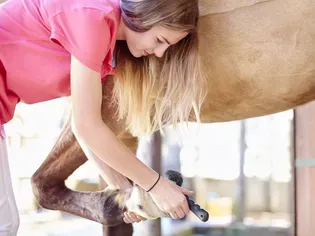
Pony Breeds
Horse and Pony Care by the Day, Week, Month and Year
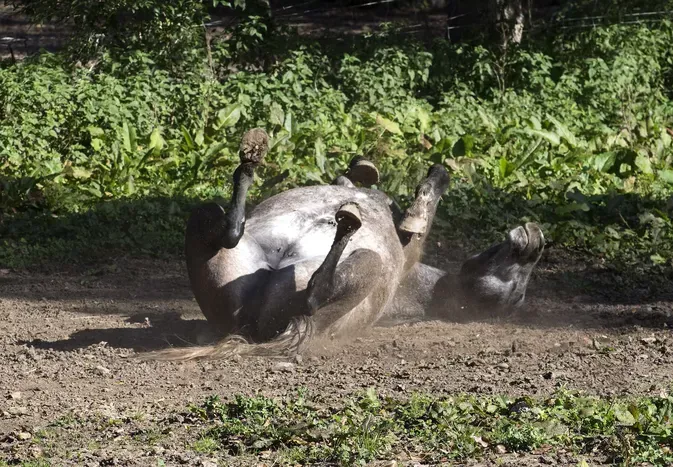
Horse Grooming
Mange in Horses
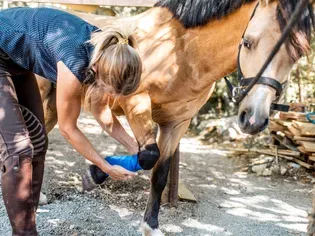
Horse Diseases & Conditions
Grease Heel in Horses
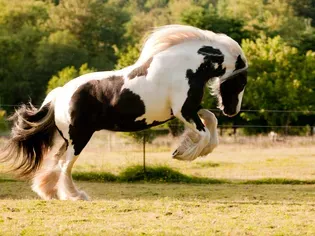
Light Horse Breeds
Gypsy Vanner Horse Breed Profile
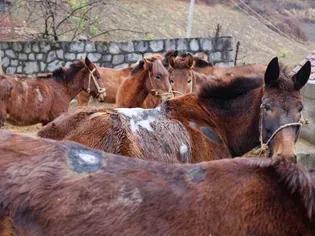
Horse Diseases & Conditions
Girth Galls and Saddle Sores
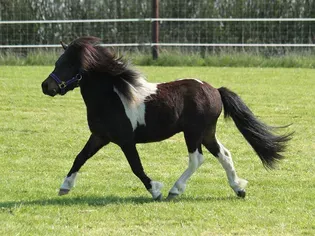
Pony Breeds
Shetland Pony Breed Profile
